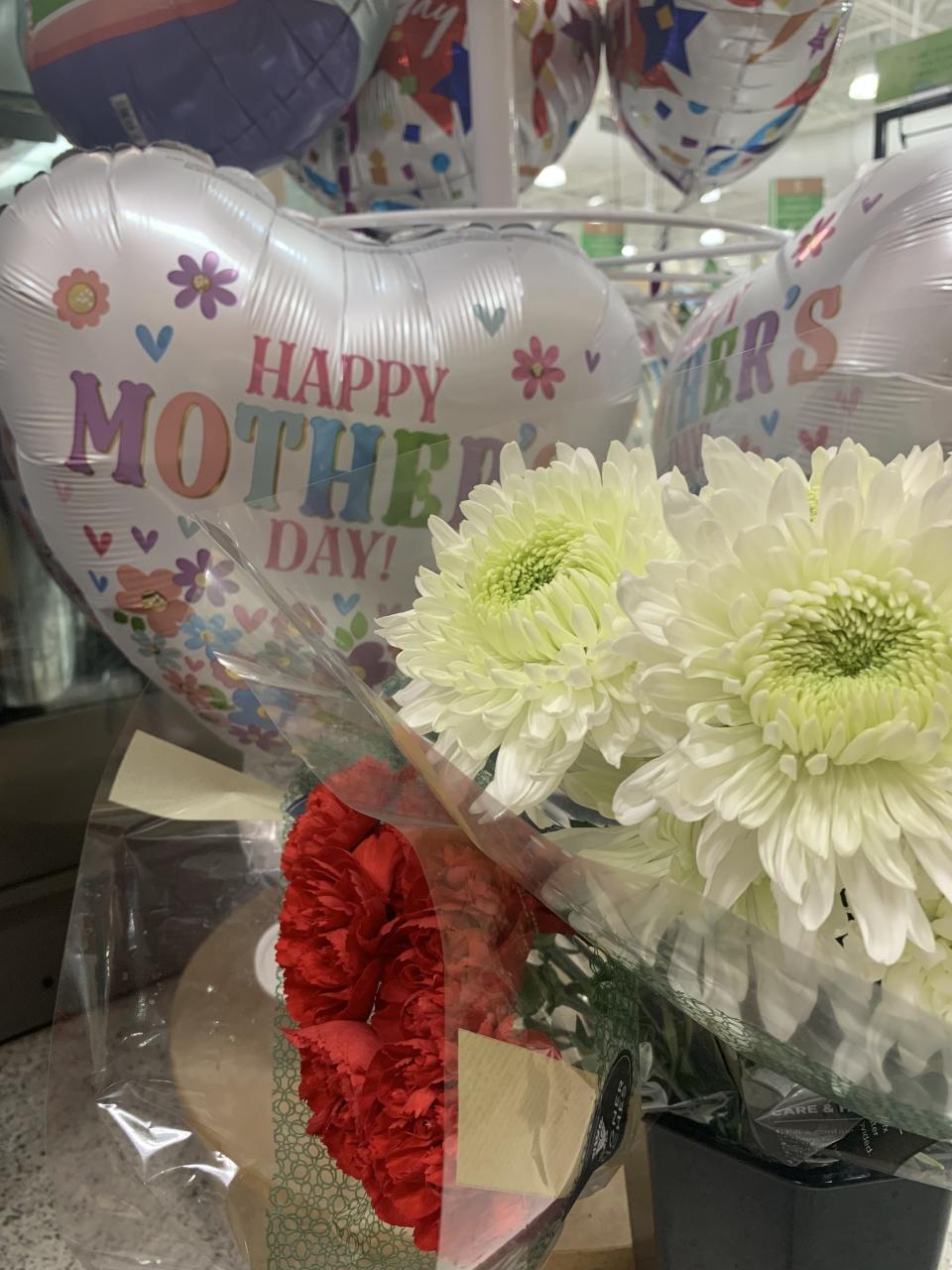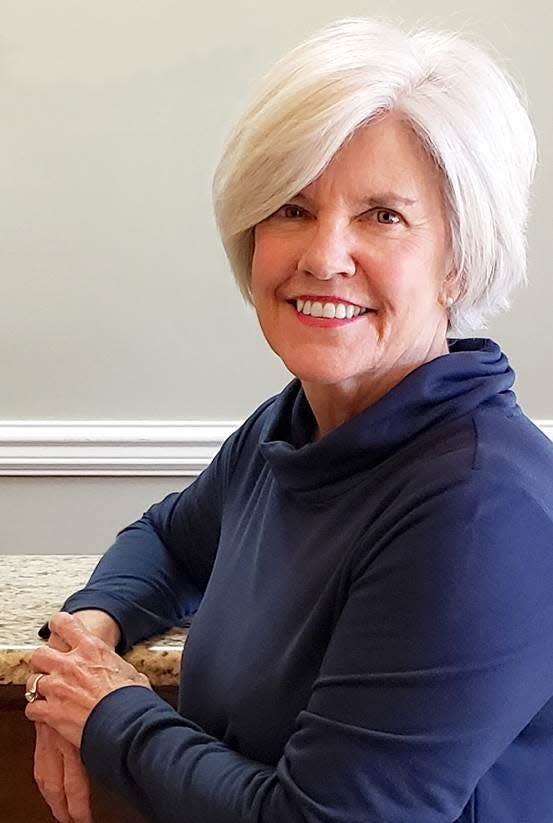The complexity of Mother's Day: Celebrations both sweet, bittersweet | Candace McKibben
I grew up in a church whose custom was to honor mothers on Mother’s Day. More than simply a cursory mention of the day in the morning announcements or as an illustration in the sermon, the church offered red or white carnations to pin on our clothing, depending on whether your mother was living or was deceased.
As a child, I recall appreciating any novelty in the predictable rhythm of worship week to week, but this ritual seemed a little uncomfortable to me. For all my childhood, my father always had a white carnation as his mother had died when I was a baby. My mother always had a red carnation as her mother lived until I had children of my own.
It was sad for me to look around at the adults in the church, who like my father, were remembering mothers no longer living. In our death-denying culture, it felt somehow like too much information to know this status about my Sunday School teachers, choir leaders, and missions directors.

The opening hymn we sang every Mother’s Day, as our children’s choir processed down the aisle of the church where we could see the telling flowers on each chest, was a grand one that our organist played with great skill. The melody was beautiful, and I still remember the lyrics to this day. Beginning, “We offer thanks and praise to God for our mothers whose devoted love, through all the changing years has been as faithful as the stars above,” it went on through three stanzas to honor the sacrificial love of mothers.
Emotional holiday
What I did not know then is how complex Mother’s Day can be and how whether your mother is living or deceased is only one of the ways the day can stir deep emotions.
In her helpful book, “Motherhood, Facing and Finding Yourself,” Jungian therapist and author, Lisa Marchiano, challenges the idealized depiction of perfect motherhood as pure selfless love and devotion, recognizing that women have their own needs. She encourages mothers “to be truly present to their own life, with all its heartaches, disappointments and joys” as they mother their children.
Reading her book, I am gaining insights into my relationship with my mother, my daughters as youth and now mothers themselves, and myself, hopefully helping me to become a more whole person.
Connections between mothers and their children of all ages — whether deeply loving, painfully complicated, or some mixture — are profound. It is a relationship that throughout the ages of humanity people have found ways to honor.
Ways of honoring mothers
In the modern era, the day that we have come to call Mother’s Day in the US originated with Philadelphian Anna Jarvis, who on the second Sunday of May in 1908, held a service honoring all mothers in memory of her beloved mother, in her mother’s home church of West Virginia.
Her mother, Anne Reeves Jarvis, created the Mothers’ Day Work Clubs, which provided a place for women to learn about childcare strategies. These clubs became a source of reconciliation during the Civil War, as wives of both Confederate and Union soldiers came together to hone their mothering skills, and no doubt grieve.
In keeping with the day’s origin of a remembrance service, some years ago now the Community Relations Department at Big Bend Hospice, in conjunction with the bereavement counselors and chaplains, offered the community an annual opportunity near the date of Mother’s Day to remember deceased mothers.
At the original service, we were not sure how many to expect and were overwhelmed at the response. What we thankfully did understand in planning, is that not everyone has or had a positive relationship with their mother, and not all mothers have been able, for whatever reasons, to nurture their children as they had hoped.
We believed allowing for the broader scope of motherhood to be remembered would best serve those who came. And that proved true.
Celebrations sweet and bittersweet
I am reminded of a profound statement made by author and psychologist Mary Pipher, praising a journalist and father for his courage in sharing the story of his son’s addiction. Pipher writes, “When one of us tells the truth, he makes it easier for all of us to open our hearts to our pain and that of others.”
Thankfully, many will have a joyous celebration on Mother’s Day at one of the many restaurants around town hosting special brunches, or in their own homes as children prepare breakfast on a tray to serve to mothers in bed or as families gather to honor a matriarch. The websites,tallahasseefoodies.com and fun4tallykids.com offers many possibilities for celebration.
But there will also be those who struggle with the day whose hearts are opened to pain, because the carnation they would wear is white, not red. Grief is the natural reaction of so primal a loss as the loss of a parent. And as priest, Henri Nouwen, writes in the book, “In Memoriam,” which he penned after the loss of his own mother, “we are different without our mothers, but their loss can be the beginning of something new in us.”
Some struggle with the day because they do not have enough money to make ends meet and may be separated from their children, or because of some hurt long ago that still lingers and interferes with their relationship today, or because of not being able to have children or not being in the position to do so.
Tender love amid loss
The stories are many and varied, and our sensitivity to open our hearts to our own pain and that of others creates the sacred space for healing on this sometimes difficult holiday.
I will be celebrating this Mother’s Day in North Carolina with the daughter of a dear friend who died too soon at the age of 61. Since Carol’s loss, I have had the honor of loving, and at times mothering, my friend, Erin.
Dr. Sley will graduate and be hooded at a ceremony in Chapel Hill this Saturday, a remarkable accomplishment that I am so honored to see. We will not only celebrate her resilience and hard work on Saturday, but also Mother’s Day, a tender day for us both. I am praying it will be a day of healing and hope.
I also pray for all those who are mothers, who are missing mothers, who are hoping to be mothers, and who have been mothering toward others, that the day will be a reminder of the power and beauty of motherhood. May we who owe a debt of gratitude to those who have nurtured us find meaningful ways to express that thanks.
Happy Mother’s Day.

The Rev. Candace McKibben is an ordained minister and pastor of Tallahassee Fellowship.
This article originally appeared on Tallahassee Democrat: Power beauty and complexity of Mother's Day

